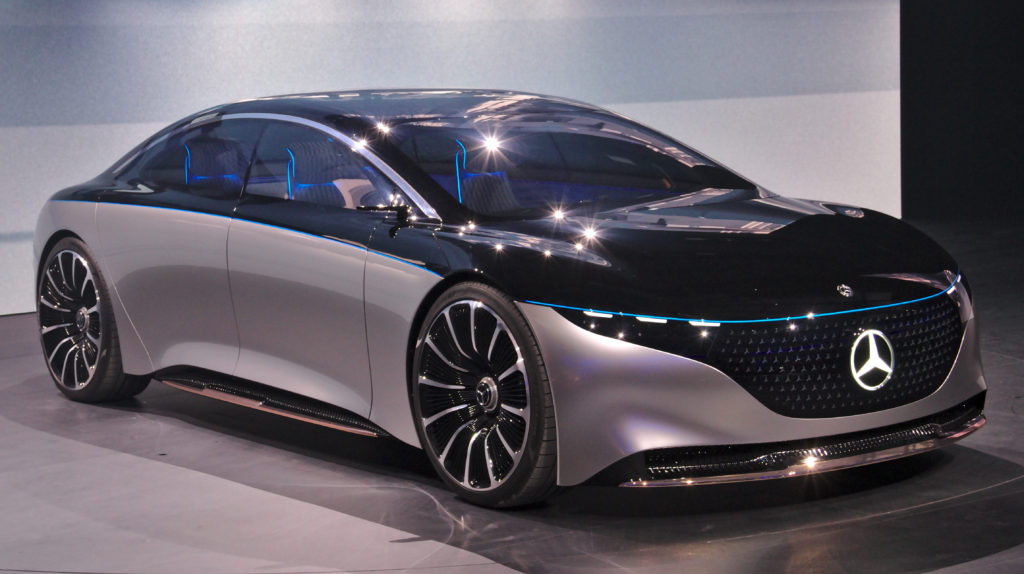Mercedes opens battery plant for Alabama-made electric SUVs

Mercedes-Benz Group AG opened a battery factory in Alabama months before the luxury-car maker starts assembling electric SUVs nearby in an effort to challenge Tesla Inc. in the U.S. EV market.
The German manufacturer will produce lithium-ion batteries at the new Bibb County plant, and start making all-electric EQS and EQE sport utility models at its existing factory in Tuscaloosa in the coming months. Mercedes also announced a partnership with Chinese-owned battery company Envision AESC, which it said will set up a U.S. cell facility that will supply modules by the middle of the decade.
“We’re on a very fast track to turn over a whole industrial footprint toward EVs,” Mercedes Chief Executive Officer Ola Kallenius told Bloomberg Television. He said the carmaker “can’t make enough” of its newest electric models, which include the flagship EQS sedan introduced last year.
Mercedes has budgeted 40 billion euros ($43.8 billion) this decade for electrifying its lineup to defend its position in the premium-car market. The company said it’s invested $1 billion in Alabama between the battery plant, logistic centers and the production lines it’s upgraded to make EVs.
The Tuscaloosa factory will be able to flex production between combustion engine, plug-in hybrid and fully electric drivetrains.
“We’re going to see, over the next two to three years, the electric share of that production just go up and up,” Kallenius said.
Envision AESC already supplies batteries to Nissan Motor Co.’s Leaf hatchbacks in Smyrna, Tennessee. The Japanese carmaker sold a controlling stake in its AESC battery operations to China’s Envision Group in 2018 while retaining a 20% holding.
The battery system for the EQS SUV has a modular design already seen in the EQS sedan, the electric sibling to the S-Class. The cell chemistry used is predominantly nickel, along with cobalt and manganese.
Mercedes began to see commodity prices go up in the fall of last year, and the war in Ukraine is adding to those pressures. The company warned last month that profitability at its main cars division could slip from a record high last year.
“We’ll have some headwinds on that,” Kallenius said. “We try to counter-balance that with efficiency efforts on our end, but it’s something that we have to watch.”
Soaring raw-material costs and persistent supply-chain problems have been an industrywide challenge. BMW AG, which so far has been better able to navigate the persistent shortage of semiconductors, overtook Mercedes in sales last year for the first time since 2015.
Mercedes has several suppliers in Ukraine that it’s working with to minimize any affect on its vehicle production. The automaker has had to reduce output at a German factory due to disruptions in the supply of wire harnesses that power car electrical systems.
While chips will remain a constraint this year, Kallenius said he’s hopeful supply will improve in the second half of the year.
“We’re working with our partners around the world to improve this, and then take another step into more of something that looks like normalcy hopefully in 2023,” he said.
(By William Wilkes and Matthew Miller)
{{ commodity.name }}
{{ post.title }}
{{ post.date }}




Comments